Matt McGee at Search Engine Land has an interesting story about the town that disappeared entirely from Google Maps. Sunrise, Florida mysteriously vanished, but was resurrected. Google gave the site the following statement:
Google is committed to providing our users with the richest, most up-to-date maps possible. We’ve built our map from a combination of authoritative sources, ranging from the U.S. Census Bureau to commercial data providers, and have used satellite, aerial and Street View imagery to help complete the map. Overall, this provides a very comprehensive map of the U.S., but we recognize that there may be occasional inaccuracies that could arise from any of those sources. We encourage users to let us know when something is incorrect by using our “Report a Problem” button, found at the bottom right corner of the map.
Michael Arrington at TechCrunch has an interview with Facebook CEO Mark Zuckerberg about the company’s mobile plans.
Developers can now access locations of 250 million phones across U.S. carriers, according to Location Labs, as cited in an article by ReadWriteWeb. This is through an API from the company.
MobileCrunch talks about a new app coming out called ChatSquare, which lets you chat with other people in the same FourSquare location. This could potentially make Foursquare more useful to more people.
Silicon Alley Insider points out that Zynga is advertising for a "Software Engineer – Android" on its jobs site. This likely means Android games are on the way.
Neowin.net reports that Chris Wilson, who was known as the "IE Platform Architect" has left Microsoft for Google. This is particularly interesting, given that Microsoft has just launched its most interesting version of its browser in years, and Chrome is becoming more and more of a contender in the space. Neowin.net says he won’t be working on Chrome for at least another year though, due to a contract with Microsoft.
Speaking of Chrome, Google announced today that the Google Chrome Frame has graduated from beta, and is now being promoted in the stable channel.
The Wall Street Journal says RIM could unveil its answer to the iPad as early as next week.
MerchantCircle has acquired TimeBridge "to Offer Superior Online Scheduling Capabilities to Over 1.3 Million Local Business Owners."
AOL has partnered with Marlo Thomas to launch a new site. "Marlo Thomas has helped define an empowered world for women, created ground breaking content for children, and produced best-selling books that improve and inspire people’s lives. AOL is delighted to partner with Marlo to bring her content and creativity to the 250 million global consumers of AOL*," said Tim Armstrong, Chairman and CEO of AOL. "Marlo continues to have a big impact on families and health through her work at St. Jude’s Children’s Research Hospital and we expect her to have just as significant an impact on our audience."
VChatter, which describes itself as "a family-friendly social video chat service with over 2.5M active monthly users" is expanding its service with the launch of a destination site and personal URLs that it says "add a video layer on social sites with a badge that connects directly to a live video chatroom."
The service, which ties a user’s identity to Facebook ID, is able to ban repeat offenders and uses a mix of tools and processes to remove inappropriate content and maintain a safe and clean environment, which would give it a leg up on ChatRoulette. The company’s CEO and co-founder, Will Bunker, founded the dating site that was acquired by Ticketmaster and later became Match.com.
Twitter has made some API announcements regarding the new version of Twitter. You can see the specifics here.
Mint.com and Zillow.com announced a partnership to help customers determine their homes’ value as part of their overall financial portfolio.


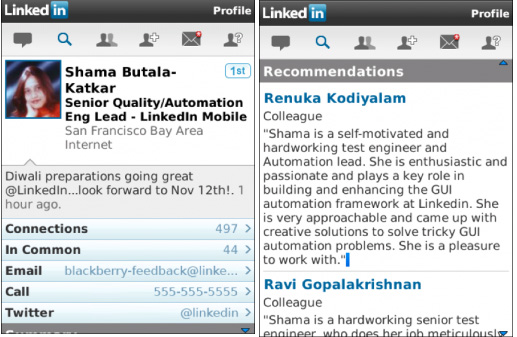

 For those of us who live outside of Apple’s distortion field, we know that 7" tablets will actually be a big portion of the market and we know that Adobe Flash support actually matters to customers who want a real web experience. We also know that while Apple’s attempt to control the ecosystem and maintain a closed platform may be good for Apple, developers want more options and customers want to fully access the overwhelming majority of web sites that use Flash. We think many customers are getting tired of being told what to think by Apple. And by the way, RIM has achieved record shipments for five consecutive quarters and recently shared guidance of 13.8 – 14.4 million BlackBerry smartphones for the current quarter. Apple’s preference to compare its September-ending quarter with RIM’s August-ending quarter doesn’t tell the whole story because it doesn’t take into account that industry demand in September is typically stronger than summer months, nor does it explain why Apple only shipped 8.4 million devices in its prior quarter and whether Apple’s Q4 results were padded by unfulfilled Q3 customer demand and channel orders. As usual, whether the subject is antennas, Flash or shipments, there is more to the story and sooner or later, even people inside the distortion field will begin to resent being told half a story.
For those of us who live outside of Apple’s distortion field, we know that 7" tablets will actually be a big portion of the market and we know that Adobe Flash support actually matters to customers who want a real web experience. We also know that while Apple’s attempt to control the ecosystem and maintain a closed platform may be good for Apple, developers want more options and customers want to fully access the overwhelming majority of web sites that use Flash. We think many customers are getting tired of being told what to think by Apple. And by the way, RIM has achieved record shipments for five consecutive quarters and recently shared guidance of 13.8 – 14.4 million BlackBerry smartphones for the current quarter. Apple’s preference to compare its September-ending quarter with RIM’s August-ending quarter doesn’t tell the whole story because it doesn’t take into account that industry demand in September is typically stronger than summer months, nor does it explain why Apple only shipped 8.4 million devices in its prior quarter and whether Apple’s Q4 results were padded by unfulfilled Q3 customer demand and channel orders. As usual, whether the subject is antennas, Flash or shipments, there is more to the story and sooner or later, even people inside the distortion field will begin to resent being told half a story. 
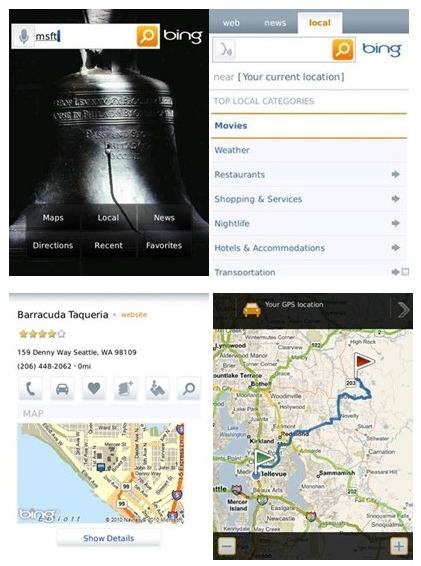


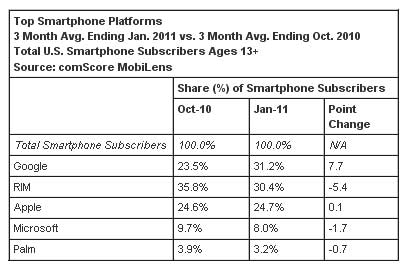
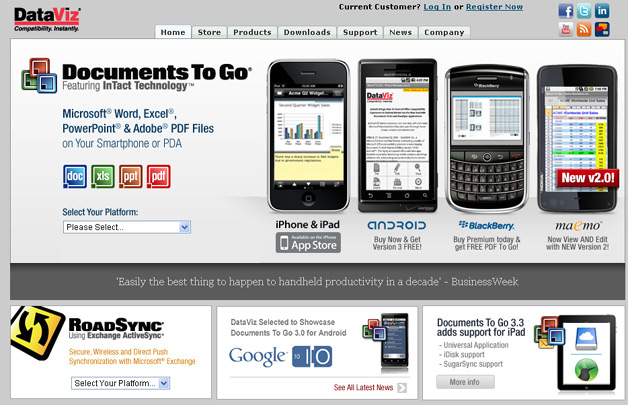
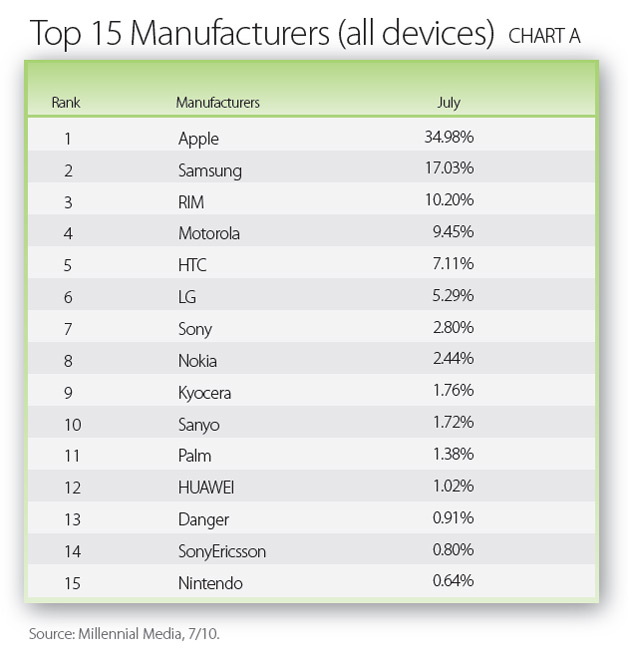
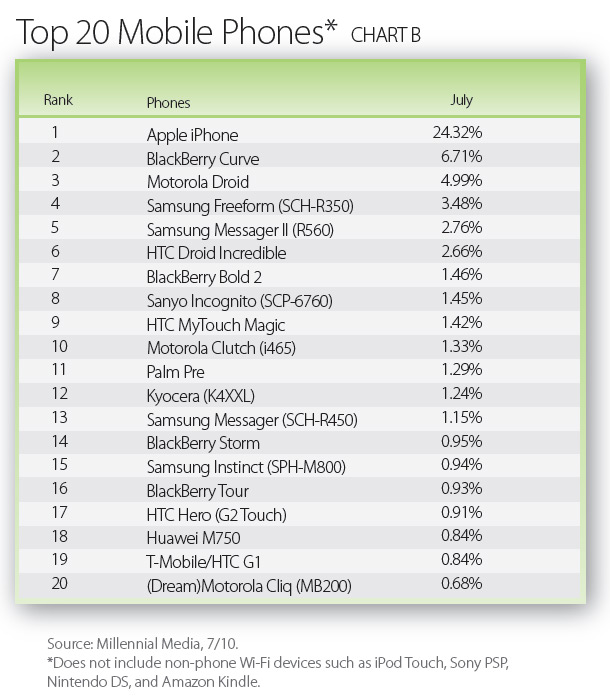
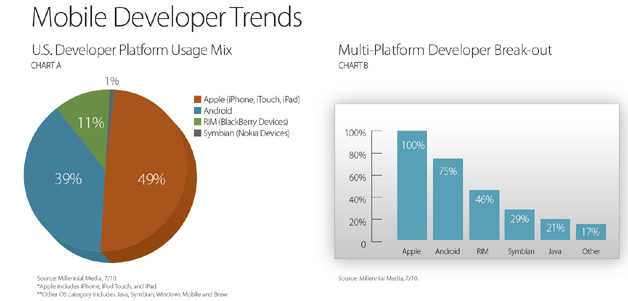

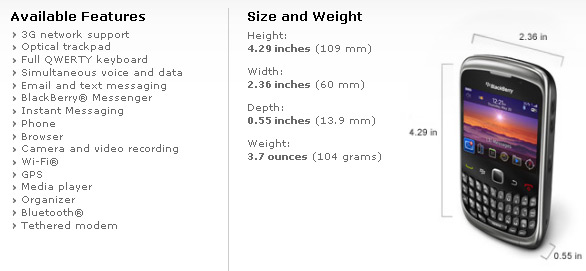
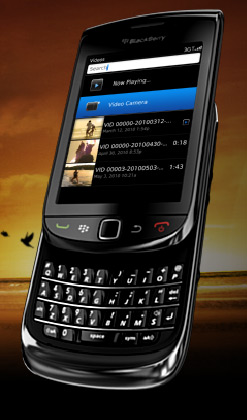
 The New York Times is offering a platform for producing iPad and iPhone apps to other publishers,
The New York Times is offering a platform for producing iPad and iPhone apps to other publishers,  Will it be called the BlackPad? As Mobile Crunch
Will it be called the BlackPad? As Mobile Crunch  "Email as we know it would essentially stop working if it weren’t for InNova’s invention," says InNova lead counsel Christopher Banys. "More than 80 percent of email is spam, which is why companies use InNova’s invention rather than forcing employees to wade through billions of useless emails. Unfortunately, the defendants appear to be profiting from this invention without any consideration for InNova’s legal patent rights."
"Email as we know it would essentially stop working if it weren’t for InNova’s invention," says InNova lead counsel Christopher Banys. "More than 80 percent of email is spam, which is why companies use InNova’s invention rather than forcing employees to wade through billions of useless emails. Unfortunately, the defendants appear to be profiting from this invention without any consideration for InNova’s legal patent rights."
